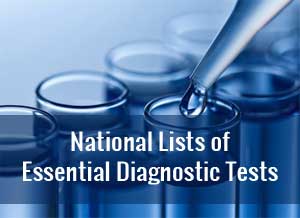- Home
- Medical news & Guidelines
- Anesthesiology
- Cardiology and CTVS
- Critical Care
- Dentistry
- Dermatology
- Diabetes and Endocrinology
- ENT
- Gastroenterology
- Medicine
- Nephrology
- Neurology
- Obstretics-Gynaecology
- Oncology
- Ophthalmology
- Orthopaedics
- Pediatrics-Neonatology
- Psychiatry
- Pulmonology
- Radiology
- Surgery
- Urology
- Laboratory Medicine
- Diet
- Nursing
- Paramedical
- Physiotherapy
- Health news
- Fact Check
- Bone Health Fact Check
- Brain Health Fact Check
- Cancer Related Fact Check
- Child Care Fact Check
- Dental and oral health fact check
- Diabetes and metabolic health fact check
- Diet and Nutrition Fact Check
- Eye and ENT Care Fact Check
- Fitness fact check
- Gut health fact check
- Heart health fact check
- Kidney health fact check
- Medical education fact check
- Men's health fact check
- Respiratory fact check
- Skin and hair care fact check
- Vaccine and Immunization fact check
- Women's health fact check
- AYUSH
- State News
- Andaman and Nicobar Islands
- Andhra Pradesh
- Arunachal Pradesh
- Assam
- Bihar
- Chandigarh
- Chattisgarh
- Dadra and Nagar Haveli
- Daman and Diu
- Delhi
- Goa
- Gujarat
- Haryana
- Himachal Pradesh
- Jammu & Kashmir
- Jharkhand
- Karnataka
- Kerala
- Ladakh
- Lakshadweep
- Madhya Pradesh
- Maharashtra
- Manipur
- Meghalaya
- Mizoram
- Nagaland
- Odisha
- Puducherry
- Punjab
- Rajasthan
- Sikkim
- Tamil Nadu
- Telangana
- Tripura
- Uttar Pradesh
- Uttrakhand
- West Bengal
- Medical Education
- Industry
ICMR, Health ministry to create National Lists of Essential Diagnostic Tests, tools

New Delhi: The Indian Council of Medical Research (ICMR), the research body of the health ministry, along with several partners, including the WHO India and the McGill University, today convened the first national consultation on an Essential Diagnostics List (EDL) to create their own national lists of essential diagnostic tests and tools.
Four decades after publishing the first Essential Medicines List (EML), the WHO is developing an EDL to provide evidence-based guidance to countries to create their own national lists of essential diagnostic tests and tools to facilitate access to treatment, particularly in low-resource countries."The National EML in India has been helpful in capping prices of a variety of products, and has increased access to important medicines.
The same model could be used for diagnostics. Without diagnostics, good medicines can be wasted, misused or simply not used," an ICMR statement said. Speaking at the consultation, Dr Vinod Paul of NITI Aayog, encouraged the participants to think of EDL within the context of India's push to offer comprehensive primary care while Dr Soumya Swaminathan, DDG, WHO, assured that the WHO would offer the ICMR and the Indian ministry all the support required to succeed in this initiative.
Participants at the consultation pointed out several potential benefits to an EDL, including improving patient care, helping detect outbreaks, increasing affordability of tests, reducing out-of- pocket expenses for tests, reducing antibiotic abuse as part of AMR response and improving regulation and quality of diagnostic test among others.
Participants proposed several approaches to EDL development, including identification of tests that are necessary to maximise the impact of the National EML, to address the disease burden and meet the most important diagnostic needs of care providers and patients at each level of the health system.
The proposed list would also need to factor in the issues of accuracy, affordability, cost-effectiveness, human resources, regulatory challenges and harmonisation with the available national guidelines.
Four decades after publishing the first Essential Medicines List (EML), the WHO is developing an EDL to provide evidence-based guidance to countries to create their own national lists of essential diagnostic tests and tools to facilitate access to treatment, particularly in low-resource countries."The National EML in India has been helpful in capping prices of a variety of products, and has increased access to important medicines.
The same model could be used for diagnostics. Without diagnostics, good medicines can be wasted, misused or simply not used," an ICMR statement said. Speaking at the consultation, Dr Vinod Paul of NITI Aayog, encouraged the participants to think of EDL within the context of India's push to offer comprehensive primary care while Dr Soumya Swaminathan, DDG, WHO, assured that the WHO would offer the ICMR and the Indian ministry all the support required to succeed in this initiative.
Participants at the consultation pointed out several potential benefits to an EDL, including improving patient care, helping detect outbreaks, increasing affordability of tests, reducing out-of- pocket expenses for tests, reducing antibiotic abuse as part of AMR response and improving regulation and quality of diagnostic test among others.
Participants proposed several approaches to EDL development, including identification of tests that are necessary to maximise the impact of the National EML, to address the disease burden and meet the most important diagnostic needs of care providers and patients at each level of the health system.
The proposed list would also need to factor in the issues of accuracy, affordability, cost-effectiveness, human resources, regulatory challenges and harmonisation with the available national guidelines.
Medical Dialogues Bureau consists of a team of passionate medical/scientific writers, led by doctors and healthcare researchers. Our team efforts to bring you updated and timely news about the important happenings of the medical and healthcare sector. Our editorial team can be reached at editorial@medicaldialogues.in.
Next Story


